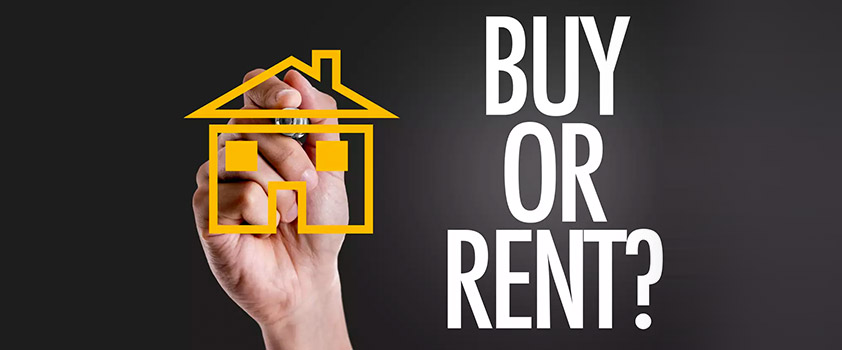SHOULD I RENT OR BUY HOUSE?
Patrik Barfi 2024-07-23 11:08:16 10:30 1

SHOULD I RENT OR BUY HOUSE?
Deciding whether to rent or buy a house is a significant financial decision that depends on multiple personal, financial, and market factors. The choice between renting and buying can have long-term implications on your finances, lifestyle, and future wealth, and it’s important to carefully evaluate your current situation, future plans, and local real estate market before making a decision. Renting a house offers flexibility and fewer responsibilities. For example, renters are typically not responsible for maintenance or repairs, and they have the freedom to relocate relatively easily, which makes renting ideal for people who may need to move for work, education, or personal reasons in the near future. Renters also avoid the initial costs associated with purchasing a home, such as down payments, closing costs, and home inspections. Instead, they pay a fixed monthly rent that may increase over time, but they don’t have to worry about property taxes, homeowners insurance, or market fluctuations that could affect property values. Renting also provides a financial safety net because renters don’t need to worry about a significant drop in home value or the potential difficulty of selling a home in a weak market.
On the other hand, buying a home can offer numerous long-term financial benefits, especially if you plan to stay in the property for several years. When you buy a home, your monthly mortgage payments contribute toward building equity in the property, unlike rent, which is money spent without accumulating any ownership stake. Over time, as you pay down the mortgage and the property value appreciates, the value of your home can increase, which could result in a significant financial gain when you sell. Additionally, mortgage interest payments and property taxes are often tax-deductible, potentially reducing your taxable income. Homeownership provides a sense of stability and security, as you aren’t subject to the whims of landlords or rent increases, and you have the freedom to make changes to the property as you see fit—whether that means renovating, adding personal touches, or expanding the space. A home can also serve as a long-term investment and an important part of building wealth, particularly if you buy in a market where home prices are expected to appreciate.
However, buying a home comes with its own set of challenges and costs. First, the upfront financial commitment can be substantial. The down payment, which typically ranges from 3% to 20% of the purchase price, can be a significant financial hurdle for many would-be buyers. In addition to the down payment, there are closing costs, which can include loan origination fees, inspection fees, appraisal costs, and title insurance, all of which can add thousands of dollars to the total cost of purchasing a home. After purchasing, homeowners are responsible for ongoing maintenance and repairs, which can add a substantial amount to their yearly expenses. While renters may call a landlord for help when an appliance breaks, homeowners bear the cost and responsibility for fixing or replacing damaged or outdated components of the home. Moreover, homeowners must also cover property taxes and homeowner’s insurance, both of which can increase over time, and their mortgage payments can fluctuate if they have an adjustable-rate loan. The risk of market fluctuations is another factor to consider. If home prices fall, you could find yourself "underwater" (owing more on your mortgage than your home is worth), which can be problematic if you need to sell the home before it appreciates again.